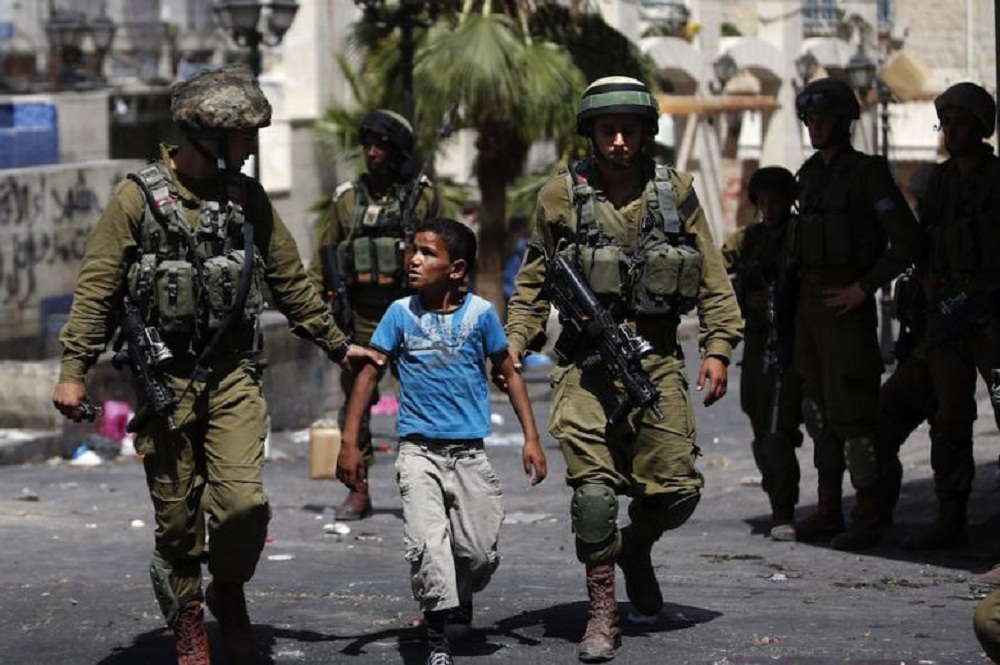
I arrived in Jerusalem the day news broke of the three kidnapped settler teenagers. I’m writing this from Ramallah on my last day, which coincides with the first day of Israel’s new offensive on Gaza, unbelievably titled ‘Operation Protective Edge’. It’s been great to see my family, but it’s fair to say that the timing of my trip hasn’t been ideal.
When I first heard the news that three settlers had been kidnapped, I didn’t predict the incident would lead to an escalation of violence to this level. When the owner of the hostel I was staying in came into the dorm to tell everyone of this latest development, I rolled my eyes at the way he proclaimed, “There’s going to be a new war!” The fact of the matter is that Palestine can become enflamed for any reason, even seemingly small incidents. There’s a tendency among some people to see everything as the beginning of the much longed-for third intifada.
A few days after I arrived in Ramallah, Operation Brother’s Keeper began. Ostensibly charged with finding the missing teenagers, in reality it was an exercise of collective punishment for Palestinians in the West Bank and in Gaza, which was the target of airstrikes. As the Israeli Defence Force (IDF) rampaged through cities like Hebron and Jenin (their usual playgrounds), news of people who had been arbitrarily arrested, beaten or killed filtered into Ramallah. This information, sometimes spoken about in groups of people, sometimes distributed via social media, created a feeling of uncertainty and tension that has not dissipated the whole time I’ve been here.
Overall Ramallah was relatively calm and untouched during Operation Brother’s Keeper. But the tentacles of the IDF reached us eventually. Early on in the Operation, a 21-year old man from Jalazoun refugee camp just outside Ramallah was shot dead. He had been released from Israeli prison only a week before. Walking past the hospital where he died the next day, which is only five minutes from where I’m staying, I was struck by how one person’s death reverberates through a whole community. Unlike those following the news of Operation Brother’s Keeper on social media or the television from afar, the people who live here do not have the privilege of distance or the ability to switch off when they’ve had enough. There’s no pause button, no channel changing, and no possibility of hitting ‘mute’ when everything gets too much. The mental claustrophobia this creates is extremely intense. I have felt it after only one month; I cannot imagine what it is like to live in this permanently.
The facts on the ground contradict the calls for a ‘balanced approach’ to the conflict which are being circulated on social media at this very moment as Israel bombs Gaza into oblivion, or being used in conversations I have with ‘internationals’ who have been Ramallah for two days before heading back to the bars in Tel Aviv, but feel they can claim to have ‘seen both sides of the conflict’. Let me say this: there is nothing balanced about the current situation. In fact, this ‘situation’ has been unbalanced since 1948. There is no balance when the murder of three Israeli settlers is used to justify the killing of seven Palestinians, the arrest of many more, and the demolition of homes. There is no balance when the guns and live ammunition of the IDF are met with the shababs’ stones and slingshots.
When you are here, in the West Bank, the unequal power relations between the Israeli state and the Palestinian community are strikingly clear. From the border, where women wearing hijabs and men with brown skin are pulled aside and made to wait for hours to gain entry, to the way that simply showing a British passport at a checkpoint gets you waved through, while those with Palestinian IDs are made hassled and humiliated. A ‘balanced’ view is not appropriate when the two sides are so incredibly unequal. There is no equality between the power and the powerless. In this context, to call for a ‘balanced’ view is to hide who has the power and what they use that power for.
Those who label themselves ‘pro-peace’ may disagree with me, but calling yourself ‘pro-peace’ without acknowledging that in order for there to be a real peace, there must be real justice, essentially means nothing. Since I’ve been here I’ve heard internationals who label themselves ‘pro-peace’ smash through all of the Palestinians’ demands, which are reasonable both in the context of morality and international law. For example, “Palestinians will have to accept that they can never have the right of return. We need a balanced approach after all.” It is interesting that most of the people labelling themselves as moderate and pro-peace seem to have a lot to say about what Palestinians should compromise on (everything) and not much about the concessions the Israeli state must make (none). Here, once again, we see the unequal power relations at play.
Palestinians don’t need the patronising line of ‘more balance, less emotion’ trotted out again and again and again. People here want a peace based on justice; not a false implication of equality between themselves and their oppressor. We should all bear this in mind if we want a long-lasting peace. In the words of Desmond Tutu, “If you are neutral in situations of injustice, you have chosen the side of the oppressor.”
